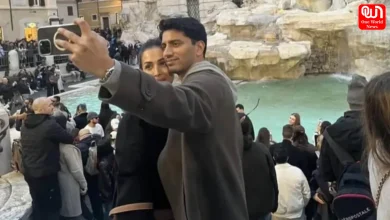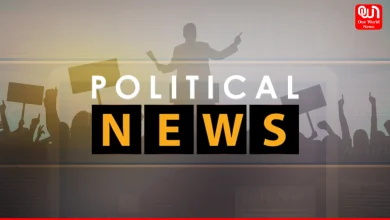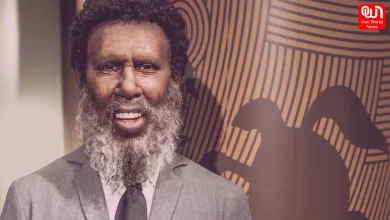In Conversation with Prof. James Tooley

Fifty four year old James Nicholas Tooley is a professor of Education Policy at the University of Newcastle, where he directs the E. G. West Centre. Regarded as a pioneer in the field of providing low cost private education in Ghana, Nigeria, Kenya and China, his research and case studies have been profiled in documentaries by the BBC and Public Broadcast Service (PBS). Apart from winning several awards which includes the prestigious Templeton Prize for Free Market Solutions to Poverty, 1st Prize, March 2006, Prof. Tooley also has several books to his name. He along with Mr. Md. Anwar had started Empathy Learning Systems Pvt. Ltd in Hyderabad which provides quality education at an affordable cost.
One World News recently interviewed him to know more about his past experiences, his inspiration and his future goals.

Picture Link : http://bit.ly/1jY4crN
Q1. Sir, how did you embark on this journey of providing low-cost private education to children in third world countries?
It’s even more optimistic and exciting than that. Yes, I am providing low-cost private education, in conjunction with local partners here in India, in Ghana and Sierra Leone, but the most important message of my work is that there are lakhs and lakhs of educational entrepreneurs who are already providing these low-cost educational opportunities! In India I estimate there are 300,000 low-cost private schools, in Anglophone West Africa perhaps 100,000. The real cause for celebration is that these entrepreneurs have created educational opportunities for low-income families which are affordable to them, and which provide higher quality than provided in the government schools.
How did I get involved? It was here in Hyderabad, 14 years ago. I went walking in the slums of the Old City, and found my first low-cost private school – in those days charging around Rs 50 per month. Then another, then another, and soon was in touch with a federation of 500 of these schools. That time 14 years ago changed my life completely – I realised that this was to be my life’s work in four ways: helping celebrate the existence of these schools, raising awareness nationally and internationally of the contribution they can make to development, helping them improve even further and, yes, opening some chains of schools myself, as working models for innovative methods of developing education.

Q2. What has been your greatest experience, while working in India?
I think it is seeing the federations of schools that have united with a common cause to help improve educational opportunities for the poor, resisting government efforts to close down those opportunities. I’ve enjoyed seeing how NISA – the National Independent Schools Alliance – is knuckling down to the hard job of bringing together groups from all across India to fight educational injustice. And in different states I see local federations working tirelessly for the same cause. I was recently with the Punjab Private Schools Organisation, speaking to their conference of 500 members. Their enthusiasm and passion was wonderful to share.
Q3. Tell us a little about your experience in Africa & China and how they are different from India?
India is the most difficult country in the world I think to run private schools, because of the oppressive regulations. Even China is easier! In China, low-cost private schools serve the migrant population in the cities, who do not have the proper registration documents to attend government schools. They also serve remote villages where access to the government schools is too difficult.
In Africa I’m mainly working in West Africa – Ghana, Nigeria, Sierra Leone and Liberia. These countries have poverty that is so much more severe than that even in India. But the regulatory environment is so much more amenable, so I was able to raise investment relatively easily there. In Ghana, with a local partner, we grew Omega Schools from zero to 40 schools and 20,000 students in 4 years. We’ve got a very innovative all-inclusive daily fee system there – based on the idea that the cash flow of the poor is daily, and they find it difficult to save monthly or termly fees. So we provide them everything, uniforms, books, tuition, lunch, all for a small daily fee. It seems to work well.

Q4. What will be the repercussions if the Government closes down Low Budget Private Schools in India?
The repercussions will be terrible, and unjust, inhumanely punishing the poor for their choice of school. For, it is the poor who will suffer most. Imagine, you are a poor parent, living in a slum, who has chosen to send your child to a low-cost private school. Why? Because you’ve seen the government school and it is hopelessly overcrowded and the teachers don’t turn up or don’t teach when they should, but make the children do chores or play. The low-cost private school you know is not as good as you aspire to for your child, but it’s certainly better than the government alternative, and that’s the real choice that’s facing you.
Then along comes the government official and closes down your chosen school, because it does not meet some abstract norms that they have snatched out of the air, and have nothing to do with the ground reality of choices you are facing. You can’t afford to send your child to a private school that does meet these abstract norms, because such schools are too expensive (paying teachers more, etc.) and in any case, such schools are too far away from your home in the slums. So you have no choice but to send your child to the government school where you know she will feel abandoned or worse.
That’s educational injustice. We have to fight it.
Q5. How do you think are the urban private schools are different from the rural ones?
There are more low-cost private schools in urban areas than rural ones of course. In urban areas they probably serve 70% or more of children, whereas in rural areas about 25%. In rural areas the private schools tend to be regional language medium, whereas in the cities they are often English medium. But apart from that, the approach and commitment of the entrepreneurs who run these schools is identical.
Q6. Who or what has been your greatest inspiration in life?
My greatest intellectual inspiration was Professor E.G. West, an Englishman who migrated to Canada. His seminal book was Education and the State, published by the Institute of Economic Affairs in 1965. West argued that, prior to the major state involvement in education in England & Wales in 1870, school attendance rates – in low-cost private schools! – were well above 90%. State intervention was not required to ensure almost universal attendance and literacy. Historically, he argued, the poor managed without the state, and government intervention eliminated their cost-effective means of gaining education, undermining their control and responsibility for it. This book changed my life, and has led to all my work to date. It was because of this book that I went looking in the slums of Hyderabad for private schools, because West had said they had existed in the slums of London and Newcastle in the 19th Century; perhaps they would exist in the slums of India today, I thought.

As far as personal inspiration, it is the hundreds and hundreds of educational entrepreneurs I meet each year who are running schools against the odds in difficult circumstances, providing opportunities for low-income families where aspirations are not satisfied by the government alternative. Such people have inspired me throughout – I’ve learnt so much from them, my debt to them is huge. Some of the people I first met 14 years ago I’m still working with today – M. Anwar in the Old City of Hyderabad is one such inspirational figure.
Q7. You were working for the World Bank in India, how was that experience like? When you went back to Washington with your research, how did they react?
I was doing consultancy for the International Finance Corporation, the private arm of the World Bank on that fateful trip back in 2000 when I found my first low-cost private school. I was sure that these schools provided a solution to the problems of reaching ‘education for all’. On my return to London and Washington, people told me to ‘calm down’. All I had found was a few businessmen exploiting the poor, they said. I determined in the rest of my research – funded largely by the John Templeton Foundation in America – to test whether that accusation was true. It is not.
Q8. Many critics say that the BPSs are exploiting the poor, how do you justify that?
You have to ask: what are the real choices available to poor people now? They can go to totally inadequate government schools – to which no government official or even teacher would like to send their children – or they can go to low-cost, budget private schools. These private schools may not always be brilliant, judged by international norms, but they certainly do a better job than the government alternative. Their standards are higher than government schools, they provide schools near to parents’ homes and they provide a caring and disciplined environment. That is not exploitation it is fulfilling a genuine need.
But even better – we can work together with these schools to help them improve even more. Working with federations as I described above can help raise quality and improve access. Creating chains of schools, like Omega Schools in Ghana, can provide models for how to raise standards even higher, and how to attract investment into the sector. We don’t need to go through slow bureaucratic processes to make real improvements to the lives of the less-blessed in society; we can do this relatively quickly and easily through innovations in low-cost private schools.

Picture Link : http://bit.ly/1kuUj4N
Q9. How can the government learn from the BPSs? Are you willing to help the Government if they ask you for a solution to the problems India is facing in the Primary Education Sector?
Government can learn that Budget Private Schools are doing a great job, and should be seen as part of the solution not a problem. Regulations need to be lowered to allow the schools to flourish. If government wants to utilize methods that are raising standards in private schools, then of course they can do so. Ensuring teachers are accountable would be the first step.
Q10. What is your vision? What do you want to achieve in life that you haven’t accomplished as yet?
14 years ago when I found for myself low-cost private schools, I realised this was my life’s work. I’m not finished yet. I want to spend the rest of my working life – why not the next 30 years? – working to continue to improve this sector and create demonstration models of even better ways of providing educational opportunities. In particular, I want to look at the assessment/examination system and curriculum. At the moment, schools are shackled by working towards the Class X and XII exams; many think that these stifle curiosity and dampen creativity. Given the will and suitable investment, we can provide an alternative in the private sector, to provide a more meaningful, relevant and exciting learning route for young people in India and beyond.
Have a news story, an interesting write-up or simply a suggestion? Write to us at info@oneworldnews.in







